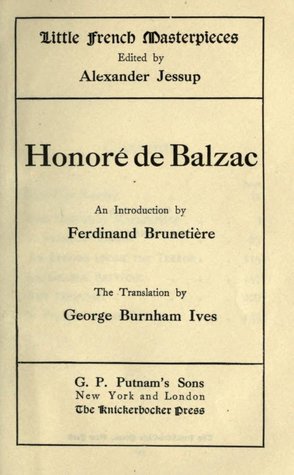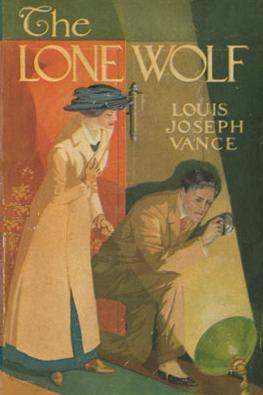To Madame Hanska.
Paris, January, 1833.
Madame,—I entreat you to completely separate the author from the man, and to believe in the sincerity of the sentiments which I have vaguely expressed in the correspondence you have obliged me to hold with you. In spite of the perpetual caution which some friends give me against certain letters like those which I have had the honour to receive from you, I have been keenly touched by a tone that levity cannot counterfeit. If you will deign to excuse the folly of a young heart and a wholly virgin imagination, I will own that you have been to me the object of the sweetest dreams; in spite of my hard work I have found myself more than once galloping through space to hover above the unknown country where you, also unknown, live alone of your race. I have taken pleasure in comprehending you among the remains almost always unfortunate of a dispersed people, a people scattered thinly over the earth, exiled perhaps from heaven, but of whom each being has language and sentiments to him peculiar and unlike those of other men,—delicacy, choiceness of soul, chasteness of feeling, tenderness of heart, purer, sweeter, gentler than in the best of other created beings. There is something saintly in even their enthusiasms, and calm in their ardour. These poor exiles have all, in their voices, their words, their ideas, something, I know not what, which distinguishes them from others, which serves to bind them to one another in spite of distance, lands, and language; a word, a phrase, the very sentiment exhaled in a look are like a rallying call which they obey; and, compatriots of a hidden land whose charms are reproduced in their memories, they recognize and love one another in the name of that country toward which they stretch their arms. Poesy, music, and religion are their three divinities, their favourite loves; and all these passions awake in their hearts sensations that are equally powerful.
I have clothed you with all these ideas. I have held out to you my hand, fraternally, from afar, without conceit, without affectation, but with a confidence that is almost domestic, with sincerity; and could you have seen my glance you would have recognized within it both the gratitude of a lover and the religions of the heart,—the pure tenderness that binds the son to a mother, the brother to a sister, the respect of a young man for woman, and the delightful hopes of a long and fervent friendship.
‘T was an episode wholly romantic; but who will dare to blame the romantic? It is only frigid souls who cannot conceive all there is of vast in the emotions to which the unknown gives full scope. The less we are restrained by reality, the higher is the flight of the soul. I have therefore let myself gently float upon my reveries, and they are ravishing. So, if a star darts from your candle, if your ear should catch a distant murmur, if you see figures in the fire, if something sparkles or speaks beside you, near you, believe that my spirit is wandering among your panels.
Amid the battle I am fighting, amid my heavy toil, my endless studies, in this agitated Paris, where politics and literature absorb some sixteen or eighteen hours of the twenty-four, to me, an unfortunate man, widely different from the author that people imagine, come charming hours which I owe to you. So, in order to thank you, I dedicated to you the fourth volume of the “Scènes de la Vie privée,” putting your seal at the head of the last “Scene,” which I was writing at the moment when I received your first letter. But a person who is a mother for me, and whose caprices and even jealousy I am bound to respect, exacted that this silent testimony of secret sentiments should be suppressed. I have the sincerity to avow to you both the dedication and its destruction, because I believe you have a soul sufficiently lofty not to desire a homage which would cause grief to a person as noble and grand as she whose child I am, for she preserved me in the midst of griefs and shipwreck where in my youth I nearly perished. I live by the heart only, and she made me live! I have saved the only copy of that dedication for which I was blamed as if it were a horrible coquetry; keep it, madame, as a souvenir and by way of thanks. When you read the book say to yourself that in concluding it and revising it I thought of you and of the compositions which you have preferred to all the others. Perhaps what I am doing is wrong; but the purity of my intentions must absolve me.
Excerpt from first letter. Entire book available free at Project Gutenberg.










